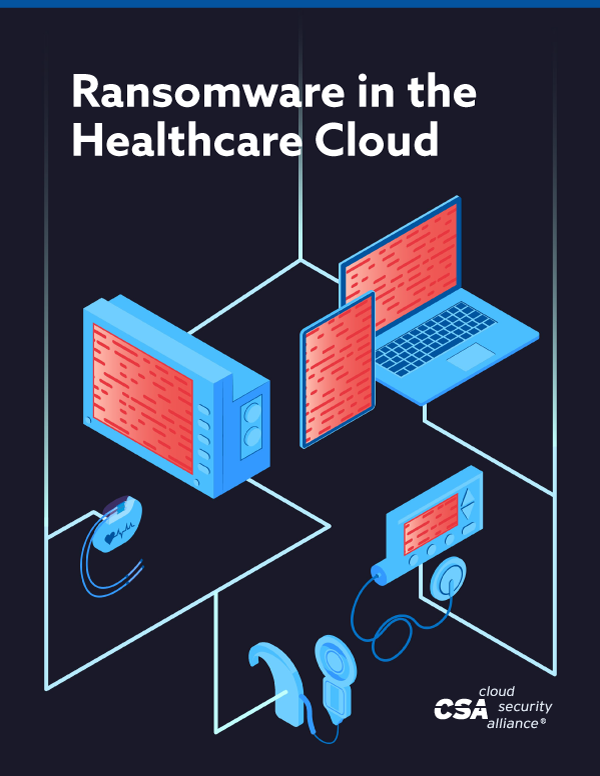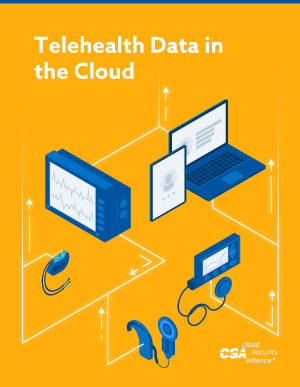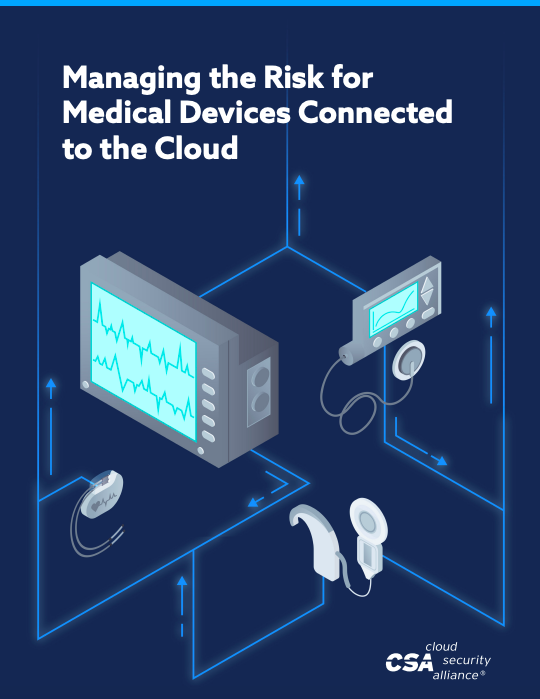Research Topic
Health Information Management
Ransomware in the Healthcare Cloud
Discuss this topic in Circle
View discussion community
Participate
| Press Mention | Source | Date |
|---|---|---|
| Alliance targets healthcare supply chain cybersecurity risk management in new guide | SC Magazine | May 12, 2022 |
| Balancing risk management with scalable costs is 'table stakes' for security strategy | Healthcare IT News | May 17, 2022 |
| Best practices for healthcare delivery organizations to manage supply chain cybersecurity risks | Help Net Security | May 17, 2022 |
| CSA Provides Best Practices For Healthcare Supply Chain Cybersecurity - Health IT Security | Health IT Security | May 16, 2022 |
| How healthcare orgs can protect their supply chain from cyber risks | Healthcare IT News | May 16, 2022 |
Cloud Security Research for Healthcare
CSA Research crowd-sources the knowledge and expertise of security experts and helps address the challenges and needs they’ve experienced, or seen others experience, within the cybersecurity field. Each publication is vendor-neutral and follows the peer review process outlined in the CSA Research Lifecycle. We recommend getting started by reading the following documents.
Ransomware in the Healthcare Cloud
Ransomware is the fastest-growing malware threat today. Over the last few years, it has risen to epidemic proportions, quickly becoming a significant revenue stream for criminal enterprises. Ransomware directly affects the ability of the Healthcare Delivery Organization (HDO) to access their data. Ransomware attacks, to complicate matters, cause more than a simple outage. They can attack the backup infrastructure. So, it’s not just about restoring from a backup; HDOs need to ensure that they recover from an uninfected backup. To add to the problem, healthcare data in cloud storage is not immune to ransomware. However, cloud storage can give you a significant advantage with data protection due to the number of flexible recovery options.
Telehealth Data in the Cloud
In the wake of COVID-19 Health Delivery Organizations (HDOs) are rapidly increasing their utilization of telehealth capabilities like Remote Patient Monitoring (RPM) and telemedicine so treat patients without leaving their home. This paper addresses the privacy and security concerns related to processing, storing, and transmitting patient data in the cloud for telehealth solutions.
Managing the Risk for Medical Devices Connected to the Cloud
This paper explains how to manage medical devices based on their proximity to the patient and introduces practices to secure the use of cloud computing for medical devices. The first section describes requirements for purchasing new devices to ensure the identification and mitigation of vulnerabilities prior to implementation. The second section describes how to manage the risk based on the proximity of the device to the patient.
Webinars







